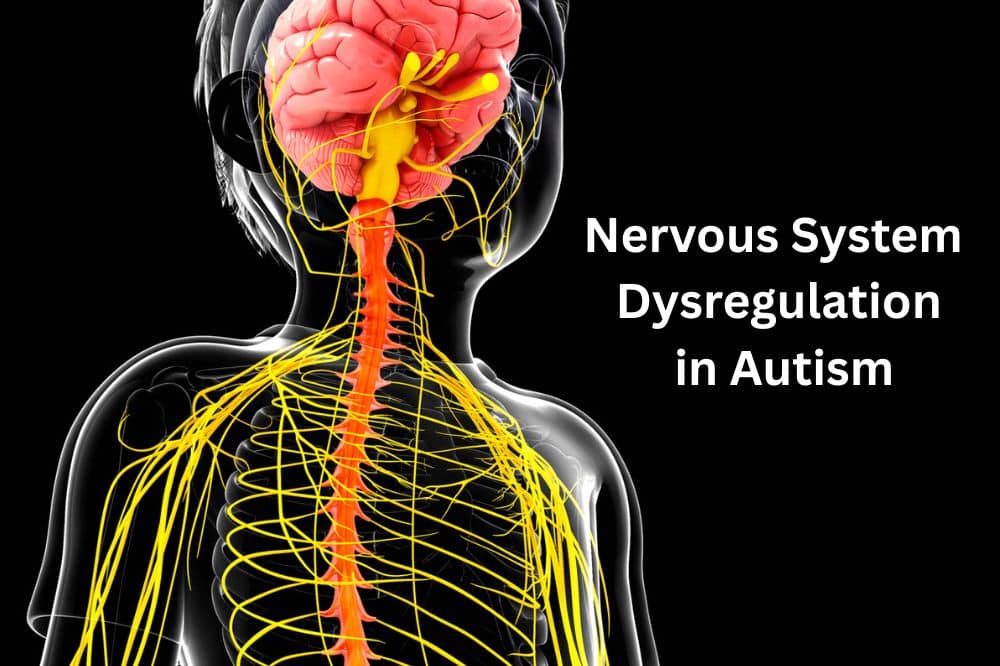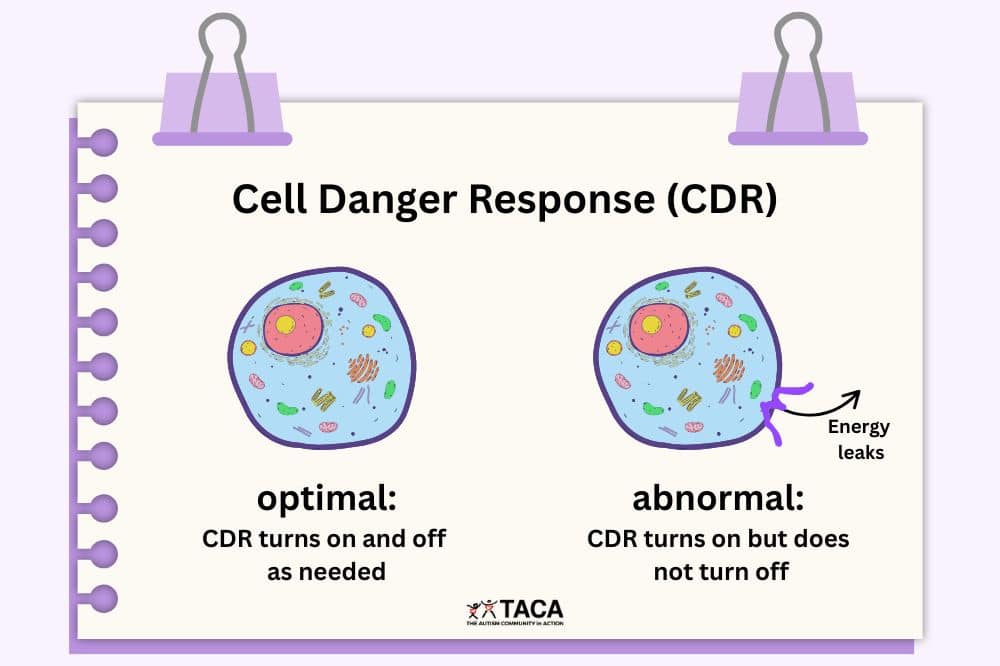Complex Gastrointestinal Issues in Autism

All contents of this resource were created for informational purposes only and are not intended to be a substitute for professional advice, diagnosis, or treatment. Always seek the advice of your physician, therapist, or other qualified health providers with any questions or concerns you may have.
Complex gastrointestinal issues in autism require more complex action. When your child is still suffering despite dietary intervention, supplementation, and remedies mentioned in the Constipation and Diarrhea article, it is time to find a qualified gastroenterologist.
This article will cover:
- When to consider a GI Specialist
- Finding and working with a specialist
- Complex GI issues common in autism
When Should I Consider a GI Specialist for My Child?
Behavior is communication. If your child with autism is having frequent meltdowns, they may be due to chronic gastrointestinal pain that your child cannot express any other way.
Parents of children who have any of the following ongoing issues should consider seeing a qualified, informed pediatric gastroenterologist:
- Chronic diarrhea and/or constipation
- Distended, bloated tummies, especially after the age of two
- Stool that has an odd texture, color, and/or odor
- Undigested food that is visible in the stool
- Self-injurious behaviors or aggression towards others
- Unexplained tantrums
- Posturing behavior — applying pressure to the abdomen by leaning over an object such as the arm of the sofa, therapy ball, mom’s knee, etc.
- Some children posture in order to sleep at night
- Some children posture when trying to have a bowel movement
- Pain during the bowel movement process
- Sleep issues — difficulty falling asleep, waking during the night
- Seizures
- Not making progress in therapeutic interventions (ABA, Floortime, speech, OT, etc.)
- Weight loss or failure to grow/gain weight for more than six months
- Recurring gut imbalance (yeast, bacteria, or parasites) that does not respond to treatment
- Failure to toilet train past a reasonable age
Please note: If a symptom carries fever, long periods of irregular bowel movements, which can lead to dehydration or other issues, extreme change in behavior, or loss of sleep or appetite for an extended period of time, please contact your doctor immediately.
“Behavior is communication. Frequent meltdowns may be due to chronic gastrointestinal pain that your child cannot express any other way.”

Finding and Working with a Specialist
Not only does living with prolonged, untreated gastrointestinal issues impact a person’s overall health, it’s also painful. For this reason, we strongly recommend that all children with ongoing GI-related problems undergo a consultation and complete evaluation with a qualified, informed pediatric gastroenterologist.
Although GI symptoms are more common in autism, there is a lack of standardized, validated measures of GI symptoms among people with ASD. This 2022 study developed a 36-item questionnaire to help identify GI issues in children and people diagnosed with autism.
Please consider the following tips for finding and working with a specialist:
- Ask fellow autism parents and friends if they have a favorite gastroenterologist who thinks outside of the box and is a good listener.
- Read our article about Finding a Doctor. Many of the tips in that article also apply to finding a specialist.
- Before your appointment, consider what you want from the gastroenterologist.
- Familiarize yourself with GI issues common to autism by reading the research linked on this page.
- If you bring a copy of these articles to your appointment and know what to ask for, it can make the process easier.
- Familiarize yourself with GI issues common to autism by reading the research linked on this page.
- During your appointment with the gastroenterologist, talk to them about recent studies linking autism and GI disorders.
- It is important to note that most gastroenterologists don’t have much experience treating GI disease in children with autism.
- Because of this, you may need to seek help well outside of your local area in order to get an appropriate evaluation and treatment plan.
- Please understand that if you do not get the results you desire from a GI specialist, it is okay to look elsewhere for help. A functional GI specialist or even a functional medicine doctor may be able to help.
What Happens During GI Assessments?
Typically, a complete assessment for a child with complex gastrointestinal issues includes the following:
- General patient intake information:
- Parent’s written narrative of child’s gastrointestinal and developmental history.
- Review of all current medical issues, including signs and symptoms you see in your child.
- Review results from any previous testing and treatment.
- Physical examination
- Depending on your child’s issues and history, the gastroenterologist may:
- Request additional lab testing (KUB, blood, urine, or stool).
- Discuss diagnostic procedures to obtain biopsies and get a better understanding of what’s triggering your child’s symptoms, specifically:
- Colonoscopy,
- Upper endoscopy (EGD), and
- Request a follow-up phone consultation or appointment to review any lab results and map out a detailed treatment plan.

Complex GI Issues Common to Autism
Eosinophilic Esophagitis (EoE)
Eosinophilic esophagitis is a chronic immune system disease. It happens when a type of white blood cell attacks the esophagus, causing damage to the esophagus making it hard to swallow.
Research:
In this study, 12.7% of kids with autism were diagnosed with EoE. In addition, 30.6% of kids with a developmental delay were diagnosed with EoE.
Testing:
An upper endoscopy is the only way to diagnose.
You can find a listing of qualified GI doctors at APFED.
Treatment:
Treatment often involves swallowed steroids and identifying and avoiding food and airborne triggers.
Please note that eosinophils can be present in the colon as well. This is known as eosinophilic gastroenteritis.
This 2024 article discusses new treatments.
Celiac Disease
Celiac disease is a digestive and immune disorder that damages the small intestine when a person eats foods containing gluten. Symptoms can range from cognitive impairment to abnormal bowel movements and GI pain.
Research:
This study shows childhood celiac disease is associated with an increased risk of subsequent psychiatric disorders, which persists into adulthood.
Testing:
Screening for Celiac Disease – Blood Tests:
- Anti-tissue transglutaminase (tTG), IgA
- Anti-Endomysium (EMA), IgA
- Anti-deamidated Peptide (DGP), IgA & IgG
- Total Serum IgA (test for IgA deficiency)
- If IgA < 10 mg/dL (deficient), the IgG versions of tTG & EMA will need to be run. Get the FULL panel.
- There is no 1 test that is sensitive & specific enough to diagnose everyone with celiac.
- Antibody tests are only accurate when a patient is on a gluten containing diet.
Treatment:
Treatment involves removing gluten from the diet.
Reflux / GERD
Reflux occurs when stomach acid comes up into the esophagus. This causes a burning pain in the esophagus, a metallic taste in the mouth, and pain upon laying down.
Research:
This study shows that adult patients with ASD are more likely to have GERD as well as complications including erosive esophagitis and esophageal ulcer.
This study found that 69% of the ASD children in the study had histologic gastroesophageal reflux.
Testing:
Testing for Reflex is typically done with a barium swallow and/or upper endoscopy.
However, many doctors treat without testing is symptoms are clear.
Treatment:
There are many treatments for reflux including dietary changes, H2 blocker (such as Pepcid), proton pump inhibitors (PPIs), and/or supplements that soothe the esophagus such as aloe and slippery elm.
Please note that PPIs will cause nutrient deficiencies over time because gastric acid is needed to absorb nutrients.
Clostridium Difficile
Clostridium Difficile, also known as “C Diff”, is a serious bacterial infection in the GI tract. It results in watery diarrhea, mucus, and abdominal pain. It can be the result of overuse of antibiotics.
Research:
C. difficile produces p-cresol bacteria in the gut. This study demonstrated p-cresol induced autistic behavior in mice by altering the dopaminergic axis.
Testing:
C. Diff infection is determined with a stool test. It can be ordered through your pediatrician or GI doctor.
Treatment:
It is treated with broad spectrum antibiotics.
Small Intestinal Bacterial Overgrowth (SIBO)
SIBO is good bacteria in the wrong place – in the small intestine. When bacteria are in the wrong place, it wreaks havoc on the GI system causing bloating after meals, pain, brain fog, and nausea.
Research:
In this study, SIBO was significantly associated with worse symptoms of autism.
Testing:
Testing for SIBO is a hydrogen and methane breath test after drinking a special sugary drink. This is done with a GI doctor.
However, many kids with autism cannot breathe into the tube at specific time intervals so functional medicine practitioners may treat based on symptoms.
Treatment:
Treatment typically involves antibiotics and diet changes.
Digestive Enzyme Insufficiency
Digestive enzyme insufficiency can lead to poor abruption of nutrients. Symptoms can range from abnormal bowel movements, nausea, pain, weight loss or lack of weight gain in children, and oily stools.
Research:
In this study, the autism group receiving digestive enzyme therapy for 3 months had significant improvement in emotional response, general impression autistic score, general behavior and gastrointestinal symptoms.
Testing:
A Stool elastase test can look for a pancreatic enzyme deficiency. However, there are other types of digestive enzyme deficiencies for which there is no testing.
Treatment:
Treatment includes using targeted, oral digestive enzymes.
Inflammatory Bowel Disease (IBD)
IBD is a term that includes Crohn’s Disease and ulcerative colitis. Symptoms include diarrhea, abdominal pain, rectal bleeding/bloody stools, weight loss or inability to gain weight, and fatigue. Keep in mind that a child without reliable communication will express pain with poor behavior.
Research:
A 2022 meta-analysis involving 11 million participants found an increased risk of inflammatory bowel disease (IBD) among autistic people.
Testing:
Blood tests include c-reactive protein (CRP) and erythrocyte sedimentation rate (ESR) to look for inflammation in the body.
Stool tests include calprotectin and lactoferrin which are proteins that can indicate gastrointestinal inflammation.
In addition, upper endoscopy and colonoscopy are often requested for further information.
Treatment:
There are numerous treatments including steroids to reduce inflammation, or other medications that suppress the immune system and thus symptoms. Dietary intervention is also very helpful.
Overgrowth of pathogenic clostridia bacteria (HPHPA)
There are both beneficial and pathogenic strains of clostridia in the colon. The pathogenic bacteria release toxins that negatively affect behavior in kids diagnosed with autism. Signs of pathogenic clostridia overgrowth include stool that has a chemical-like smell and aggression.
Research:
This study found pathogenic clostridia strains in the stools of ASD children was greater than neurotypical children.
Testing:
A functional medicine doctor typically diagnoses this with urine metabolites found on an Organic Acid Testing (OAT). A regular GI doctor will not look for this.
Treatment:
This is typically treated with broad spectrum antibiotics coupled with an antifungal to avoid yeast overgrowth during treatment.
Non-Celiac Gluten sensitivity (NCGS)
People with non-celiac gluten/wheat sensitivity experience symptoms similar to those of celiac disease, which resolve when gluten is removed from the diet. Symptoms involve bloating, brain fog, abdominal pain, constipation, diarrhea, nausea, and more.
Research:
This study found that people with autism were three times more likely to have positive celiac blood tests but no damage to their small intestines (meaning they didn’t have celiac disease).
This study out of Columbia University showed people with non-celiac wheat sensitivity have a weakened intestinal barrier, which leads to a systemic immune response after ingesting wheat.
Testing:
There are no recommended tests for non-celiac gluten sensitivity. It is a diagnosis of exclusion.
Treatment:
Treatment is a strict gluten-free diet.
Parasitic Infection
A parasitic infection is caused by an organism living off a host. It can cause fever, fatigue, abnormal bowel movements, rashes or neurological symptoms. Symptoms depend on the specific parasite. A person can get them from contaminated food, water, surfaces, bug bites, and eating undercooked meat.
Research:
In this study, toxoplasmosis in pregnant mothers is linked to autism in their children.
In addition, this study indicates that the presence of either malnutrition or intestinal parasites may put a child in a high-risk group for developmental delays and poor growth.
Testing:
Testing for parasites is notoriously difficult. You can request a stool test for Giardia parasite through your pediatrician if there are symptoms. Pin worms can be caught with the tape method. It involves putting a piece of transparent tape to the skin around the anus. Check the tape for pinworms as soon as the person awakens. Otherwise, most functional medicine doctors will treat based on symptoms because they are so difficult to catch on testing.
Treatment:
Treatment typically involves an anti-parasitic medication such as Mebendazole.
Yeast Overgrowth
Yeast is a fungus that can overgrow in the large intestine. Read the TACA article “Yeast Overgrowth in Autism” to learn more.

Conclusion
Complex gastrointestinal issues are common in autism and often require a specialist and in-depth testing and treatment. Unfortunately, many of our kids cannot express pain the way others do, so we have to be mindful that behavior is communication and advocate for our child by asking for the testing that we our children need.




